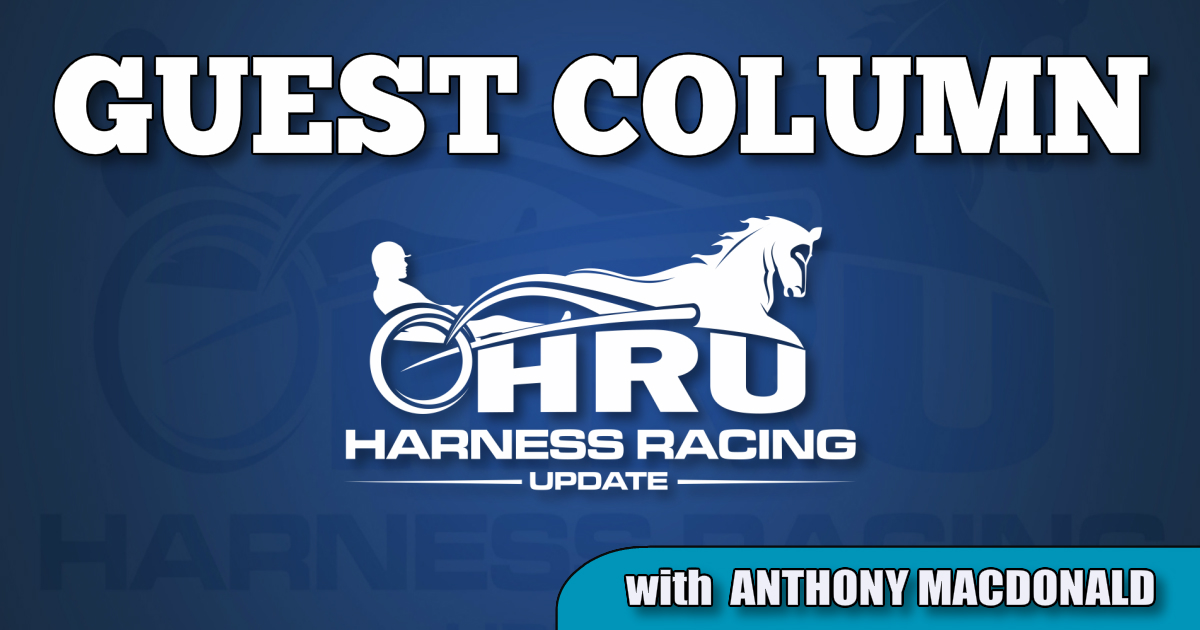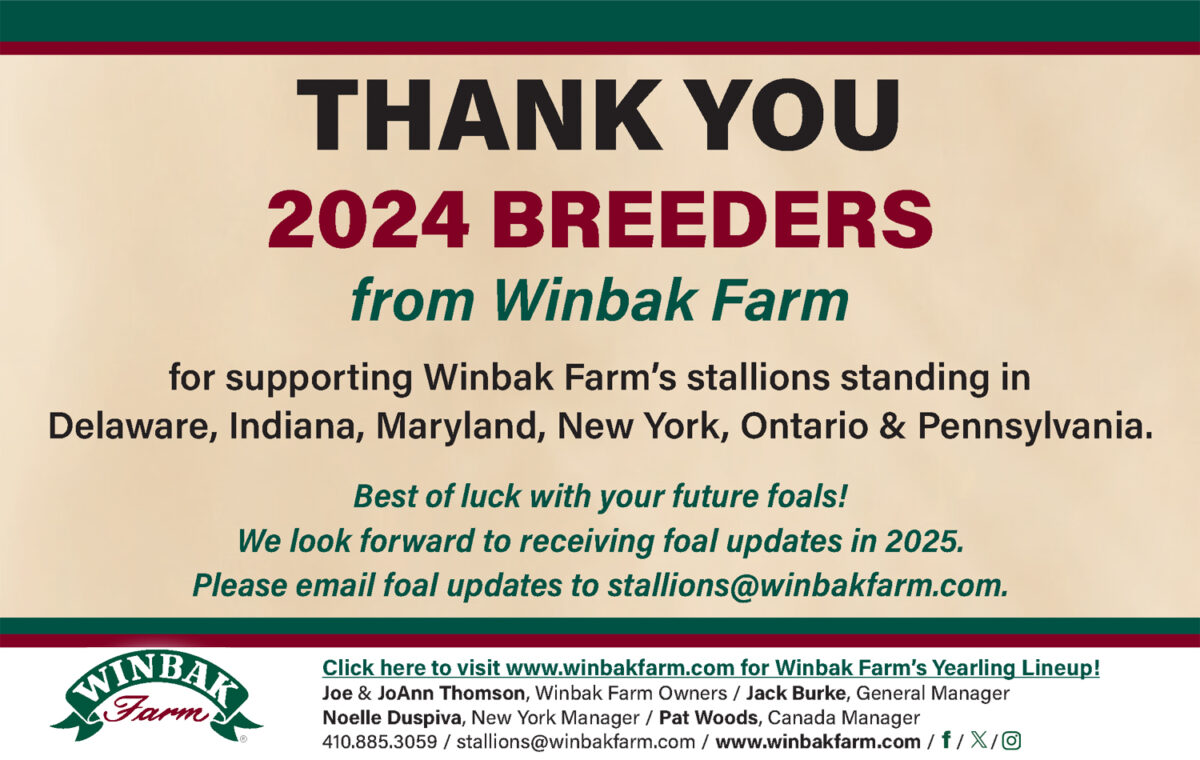

How you can help change the perception of horse racing one social media post at a time
by Anthony MacDonald
Securing and cultivating new revenue streams is imperative to horse racing’s survival. We all know that. But it’s become clear lately that defending ourselves from political attacks is equally important.
I’m sure many of you have seen the recent bad press received by our partners in the thoroughbred industry. Over the years, we too have faced similar hurtles on the standardbred side, but today’s attackers are much more sophisticated.
In a day and age ruled by popular opinion that is largely driven by social media, we have once again fallen drastically behind. Social media has affected presidential elections, sparked revolt and is now the preferred communication tool of the White House.
Using this tool correctly can be a difficult thing to do, and we certainly haven’t mastered it, but the people pushing this current narrative about horse racing have.
Special interest groups were successful in phasing out dog racing this year in California and have now shifted their sights to horse racing. They have brought war to the door steps of every track in that state, and I doubt they will stop there.
Santa Anita, now directly in their cross hairs, has come under extreme scrutiny regarding horse fatalities at their facility over the past year.
The track’s statement about this is both political, and poignant:
“Horses raced or trained at Santa Anita Park more than 420,000 times over the last year with a 99.991 per cent safety rate.”
There is no easy way to talk about horses dying, but I believe Santa Anita has done everything right in being transparent about what it is doing to combat future fatalities.
The most important points for racing to touch on in this day and age should always be:
• The care of the horse.
• Addressing and improving safety procedures.
• Expanding post career care and adoption avenues for our equine athletes.
I think we are growing as an industry in the right direction, but we cannot continue to fight as counter punchers in every battle. At some point, we have to be ahead of the criticism.
The little things we can easily do every day on social media can help shape how we are viewed and what people think about us.
Social media is reshaping society and we need to speak on behalf of our sport, horses, and the industry that we all love. Share your stories and invite people on social media into our sport. Show them why you love being a part of it. This is the very definition of a grassroots movement.
You can be sure the people on the other side of the fence will do as much, or more, and are every bit as loud as we ever could be. Look at what they have accomplished thus far:
CNN, Fox, MSNBC, and every other major mainstream media outlet has printed less than flattering stories about California racing in recent months.
The latest was the Washington Post in their most recent Sunday publication.
It’s sad, but the newspapers that used to inform us are now really just magazines that push their own agenda, worrying more about
exciting their own base and selling ad space rather than reporting the day’s events with any degree of unbiased accuracy.
The news today is whatever sells; and nowadays that’s clicks, shares, and likes.
The once mighty truth tellers, are now all in sales, and what used to be mainstream media cowers and claws for advertising revenue however they can get it.
Factor in the deep pockets of special interest groups and things start to get scary.
Before you ask why we wouldn’t simply educate people about the difference between thoroughbreds and standardbreds, explaining to them how low our catastrophic injury rate is and separate ourselves from the sport of kings, the answer is, albeit blunt, but no one cares. People who don’t know the difference between our breeds, are certainly not going to take the time to find out. A horse is a horse as they say.
We in harness racing may see two very different ships on the sea, but everyone else will only see one.
Make no mistake, they will sink together if we continue to offer no defence to claims of animal cruelty.
Our politicians are watching closely and will not stand behind us if enough of their constituents complain, and the people we all thought were our friends will be the ones holding the knife when we feel that familiar sharp pain in our backs again.
Belinda Stronach had all the right answers at the Pegasus last Saturday when interviewed on TV, and yet all the Washington Post would write about is horses dying at Santa Anita, even quoting Horseracing Wrongs with absolutely no rebuttals awarded from racing at all in the editorial.
This, of course, is on the heels of the October editorial from the very same Horseracing Wrongs’operator Patrick Battuellos who penned a riveting piece titled “The time for horse racing has passed. It’s time to outlaw it.” It was a rather biased take on horse racing as you can imagine.
Nevertheless, this isn’t some tabloid churned out in a public print shop somewhere in Greenwich Village, this is the Washington Post.
Make no mistake, this is a coordinated attack on an industry completely inept at defending itself.
So although I will win a gold medal in the 100 meter dash before Mr. Battuello will ever win a Pulitzer, he has a platform happy to peddle his biased garbage, and we do not.
We will always encounter push back from these groups. For most of us, the tool to fight back is in your back pocket right now, or on your bedside table at home. We are all connected to social media, and we are in the bloodstream of today’s society every day.
Until we have a funding model that supports significant marketing revenue increases, we should start by looking inward to ourselves to begin to change the narrative about our industry and show society what horse racing means to us, and what it could mean to them.
By engaging the general public and showing them what horse racing means to us, and offering that to them, we can start to make real change. I know that message well and it most definitely works.
This isn’t a plea for anything more than you can provide right now, and at any time of the day. We can’t change the minds of the special interest groups, but we can level the playing field, somewhat.
One thing is for certain, this is not a California problem, and it is not a thoroughbred problem. It is a horse racing problem whether we like it or not.
This is 2020 and we need to start understanding the world around us.
*Anthony MacDonald operates the fractional ownership group TheStable.ca with his wife, Amy, and was awarded the Cam Fella Award for meritorious service to the Canadian harness racing industry at last night’s O’Brien Awards.















